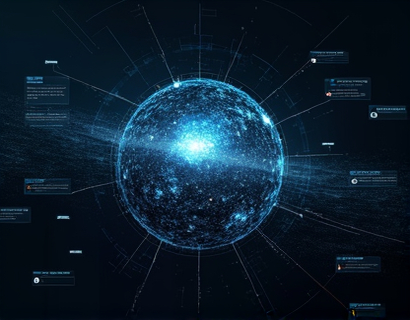Revolutionizing Calculus Education: The Power of AI-Driven Learning
In the digital age, the landscape of education is rapidly evolving, particularly in the realm of advanced subjects like calculus. Traditional methods of teaching calculus, while effective for many, often fall short in catering to the diverse learning needs of students. The integration of Artificial Intelligence (AI) into calculus learning represents a significant leap forward, offering personalized, interactive, and accessible educational experiences. This article delves into the transformative potential of AI-powered calculus learning, focusing on how specialized insights and child-friendly access can enhance the educational journey for students and educators alike.
The Role of AI in Calculus Education
AI technology, particularly in the form of intelligent chat platforms, is reshaping how calculus is taught and learned. These platforms leverage machine learning algorithms to provide accurate, verified, and contextually relevant information. For students, this means having a constant and reliable resource at their fingertips, capable of explaining complex concepts in a step-by-step manner. Educators can also benefit from these tools, using AI to supplement their teaching with additional resources and insights.
The core advantage of AI in calculus education lies in its ability to adapt to individual learning paces and styles. By analyzing user interactions, the AI can tailor explanations and examples to suit each student's needs, ensuring a deeper and more lasting understanding of the material. This personalized approach not only enhances learning outcomes but also boosts student confidence and engagement.
Specialized Insights for Advanced Learners
For students already familiar with the basics of calculus, AI-powered platforms offer a wealth of specialized insights. These platforms can delve into advanced topics such as differential equations, vector calculus, and multivariable calculus, providing in-depth explanations and real-world applications. The AI can present these concepts through interactive simulations and visual aids, making abstract ideas more tangible and easier to grasp.
Moreover, these platforms can connect students with industry experts and academic researchers, offering a unique opportunity to gain insights from those at the forefront of calculus applications. This exposure not only enriches the learning experience but also helps students understand the practical implications and future possibilities of calculus in various fields.
Child-Friendly Access and Safety
One of the most significant challenges in integrating AI into calculus education is ensuring that the content is accessible and safe for young learners. Traditional educational resources often fail to cater to the cognitive and emotional development stages of children, leading to disengagement or confusion. An AI-powered platform designed with a child-friendly interface addresses this issue head-on.
The platform uses age-appropriate language, engaging visuals, and interactive elements to make calculus accessible to younger students. The AI is programmed to recognize and respond to the unique questions and concerns of children, providing reassurance and support. Additionally, strict content verification processes ensure that all information is accurate, age-appropriate, and free from inappropriate content, creating a secure learning environment.
Interactive Learning Experiences
Interactivity is a cornerstone of the child-friendly AI calculus platform. Students can engage in real-time problem-solving sessions, where the AI guides them through each step of the solution. This interactive approach not only reinforces learning but also helps build problem-solving skills and critical thinking.
Gamification elements, such as rewards and badges for completing tasks or achieving milestones, further enhance the learning experience. These features motivate students to explore calculus more deeply and enjoy the process of learning. The AI can also adapt the difficulty level of problems based on the student's performance, ensuring a balanced challenge that keeps students engaged without causing frustration.
Support for Educators
Educators play a crucial role in facilitating calculus learning, and AI-powered platforms can significantly augment their capabilities. These tools provide teachers with a comprehensive set of resources, including lesson plans, interactive exercises, and assessment tools. The AI can analyze student performance data to identify areas where individual students or the class as a whole may be struggling, allowing teachers to tailor their instruction accordingly.
Furthermore, the platform can serve as a collaborative space for educators to share best practices, resources, and insights. The AI can facilitate these interactions by suggesting relevant content and connecting teachers with peers who have similar interests or challenges. This community aspect fosters a supportive and dynamic professional development environment.
Verified and Reliable Information
Accuracy is paramount in educational content, especially in a subject as precise as calculus. The AI-powered platform ensures that all information is thoroughly verified and sourced from reputable academic and industry references. This commitment to accuracy builds trust among users and guarantees that students are learning correct and up-to-date material.
The verification process involves multiple layers of review, including peer-reviewed articles, textbooks, and contributions from subject matter experts. The AI cross-references this information to provide a consensus-based explanation, minimizing the risk of misinformation. This level of rigor is essential in maintaining the integrity of the educational experience.
Enhancing Understanding Through Visualization
Visual learning is a powerful tool in understanding complex mathematical concepts. The AI platform incorporates advanced visualization techniques to help students grasp abstract ideas in calculus. Interactive graphs, 3D models, and animated explanations make it easier for students to visualize functions, curves, and transformations.
For example, when teaching concepts like limits and derivatives, the AI can create dynamic visualizations that show how these concepts change as variables approach certain values. This visual feedback reinforces the theoretical explanations and helps solidify the student's understanding. The platform can also adapt these visualizations based on the student's progress, providing more detailed or simplified views as needed.
Personalized Learning Paths
One of the most powerful features of AI in calculus education is its ability to create personalized learning paths for each student. By continuously monitoring a student's interactions and performance, the AI can identify strengths and weaknesses, and adjust the learning content accordingly.
For instance, if a student excels in differential calculus but struggles with integral calculus, the AI can allocate more resources and practice problems to the areas where the student needs improvement. This personalized approach ensures that no student is left behind and that each learner progresses at their own pace.
Building a Foundation for Future Success
The impact of AI-powered calculus learning extends beyond the classroom, laying a strong foundation for future academic and career success. A deep understanding of calculus is crucial for students pursuing careers in science, technology, engineering, and mathematics (STEM) fields. By making calculus more accessible and engaging, AI platforms help bridge the gap for students who might otherwise find the subject daunting.
Moreover, the skills developed through AI-assisted learning, such as critical thinking, problem-solving, and adaptability, are highly valued in the modern workforce. Students who engage with these platforms not only gain a solid grasp of calculus but also develop a mindset that is well-equipped to tackle future challenges.
Conclusion
The integration of AI into calculus education represents a significant advancement in how this complex subject is taught and learned. By providing specialized insights, ensuring content accuracy, and offering child-friendly access, AI-powered platforms are transforming the educational landscape. For students and educators alike, these tools offer a powerful ally in the pursuit of mathematical excellence, making calculus more accessible, engaging, and effective.









































